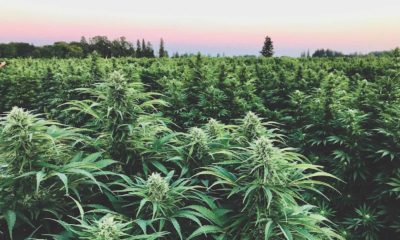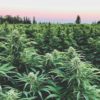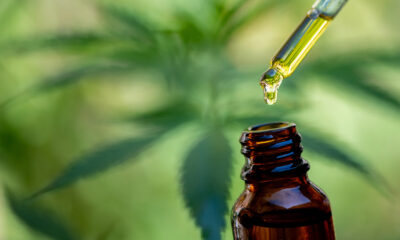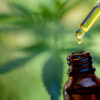
Politics
What Are Donald Trump’s Plans for CBD?
More importantly: What does Norman Sharpless, the new FDA chief plan to do about regulating America’s new favorite cannabis product?
We’re well into the meta-phase of America’s fascination with CBD, the “new” favorite cannabis sativa-derived cannabinoid. Stories about how CBD is everywhere have been everywhere for a year-plus, well before President Donald Trump triggered the current entrepreneurial wellness frenzy in December when he signed the 2018 Farm Bill into law.
How much longer this lasts — and what happens next — now appears to hinge on what a cancer doctor, and the new head of the Food and Drug Administration, thinks about CBD and whether it will take precedent over other pressing issues like e-cigarettes and the opiate crisis.
The Farm Bill legalized hemp in all 50 states— or at least removed federal prohibitions on cultivating and processing the more-ropey, less-stoney version of the cannabis sativa plant. Under federal law, “hemp” is cannabis sativa with 0.3 percent or less THC content; anything stronger is “marijuana” and means a visit from law enforcement rather than the agricultural inspector.
Neither this nor CBD’s elevation to wellness product of the moment nor its media-darling status has done much to solve any of the confusion around CBD, exactly what it does, and in which products it can go. Not food. Food with CBD is bad. But you can buy CBD that you can add to food, sure.
And neither does the continuing revolving door at President Donald Trump’s bad acid-trip funhouse carousel of a White House, which is losing its de-facto CBD champion.
Earlier this month, Scott Gottlieb, commissioner of the federal Food and Drug Administration, announced his resignation. His departure comes two months shy of two years on the job — meaning he lasted longer than most Trump appointees — and one month before promised Capitol Hill hearings on possible CBD regulations.
At the moment, CBD is considered a substance closer to a drug as opposed to a dietary supplement, but not quite a drug itself.
This is a result, some have speculated, of drug-maker GW Pharmaceuticals’ development of CBD-derived prescription medications including Epidiolex, which received approval from the FDA last year.
Whatever CBD is, it’s something that cannot be sold with the promise of any medical benefits, according to a memo Gottlieb circulated in December. This is because any promised medical benefits must be proven by FDA-approved trials — and it’s also because THC and CBD are components in drugs that are FDA-approved, like GW’s.
That hasn’t stopped everyone from wellness influencers to hemp farmers to nutraceutical-slingers from promoting CBD as a cure-all supplement and adding it to drinks, sprays, foods, you name it — and from those products being sold in turn at gas stations, coffee shops, bookstores, video-rental parlors, and on Amazon (where you can buy smokeable CBD flower).
At the same time, various states’ interpretations of FDA directions on CBD have led regulators in New York, South Carolina, and elsewhere to pull CBD-infused food products from shelves and to warn merchants that continued CBD-infused food sales could be a problem. But selling CBD products themselves, that’s OK.
On March 13, Trump picked Norman “Ned” Sharpless, a physician and head of the National Cancer Institute, to temporarily take over the reins of the FDA from Gottlieb. Sharpless could become the permanent director, though officials told the Associated Press that a search for a new permanent director is underway.
As the New York Times reported, Gottlieb’s exit is being not so quietly celebrated by the tobacco industry, and specifically by makers and sellers of electronic cigarettes like the ubiquitous JUUL, favorite binky of high-school kids coast-to-coast. Gottlieb proved an aggressive regulator of e-cigarettes, but his exit has triggered a flurry of lobbying activity in Congress, members of which are hearing from tobacco interests why the FDA should back off of delicious cucumber-flavored vape made by billion-dollar companies.
What does this mean for CBD, if anything? If anybody knows, they’re not saying, which means we’re left to speculate, but it looks as though the status quo will be maintained at least for now.
What it does mean for the short-term that the promised CBD hearings, never scheduled, are on indefinite hold.
It also means that the FDA’s ideology on CBD is yet again unclear — to a point. It seems CBD makers will continue to court trouble if they continue to promote CBD as an inchoate but no less magical cure-all and dump it into all kinds of products.
But how bellicose regulators will be remains to be seen. Who wants to try their luck first?
TELL US, have you tried CBD?


























